Producers Guild of India
Enhancing the value of cinematic arts
Established - 1954
17th November 2018
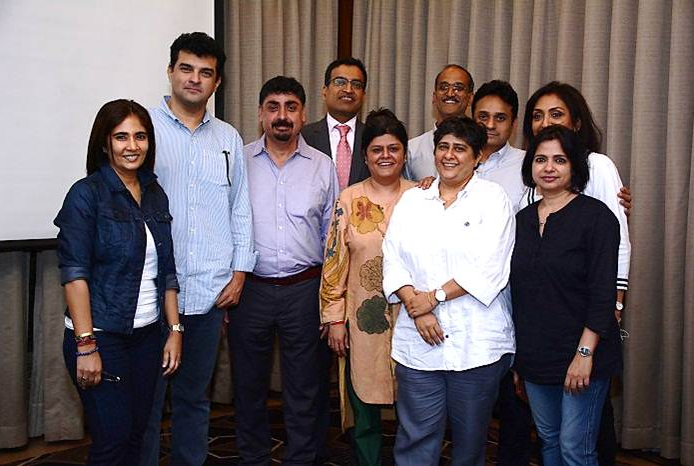
17th November 2018, The #MeToo movement that took social media in India by storm a month ago gave rise to several questions about the existence of internal mechanisms that can provide support to women and help create a healthy workplace environment for women employees. Many were not aware that every organisation has to provide an internal body to address the issue of sexual misconduct. Even if women were aware of the existence of such mechanisms, they did not reach out to them. As a result, many incidents of sexual harassment have gone unreported. Often, organisations were in denial of such cases.
In light of these events, the Producers Guild Of India held an Extraordinary General Meeting as a part of its sensitisation programme. THe agenda for the meeting, held in Mumbai, was to make it mandatory for its members to implement The Sexual Harassment of Women at Workplace (Prevention, Prohibition and Redressal) Act, 2013 (PoSH). The Guild unanimously passed a resolution to amend its by-laws and thus make it compulsory to constitute an Internal Complaints Committee (ICC) for organisations with a minimum of 10 members.
“There is no wrong time to do the right thing. This is a start. We are helping you to change,” said Siddharth Roy Kapur, President, Producers Guild Of India, as a part of his opening note. He stated that sexual harassment is not a ‘film industry problem’ and that it is a part of multiple industries. Stressing on the PoSH guidelines, he talked about the importance of having an ICC to create a secure and healthy working environment for women at their workplaces.
He thanked the subcommittee for helping enable and empower the members to implement the guidelines, and said that complying with them is more important than merely affirming. Even though the film industry lags behind the curve in terms of implementation, he said there is no wrong time to change. “This is a start; it is not something that can be solved in a day. We are here and are committed to helping you through the process,” he said.
As a premiere body of producers within the industry, the Producers Guild Of India aims at being an enabler in ensuring that all its members are compliant with the law as a part of its basic hygiene. It also intends to help, educate and enable its members to be able to set up the right processes within their organisations.
Complykaro is a compliance service provider that helps companies comply with their legal obligations. Its Founder and CEO, Vishal Kedia shared that 99 per cent of women are harassed at their workplace and 85 per cent of women are not willing to file a complaint. Those who are not willing to lodge a complaint with the ICC can go to court, after which criminal procedures will be followed. He stated that the issue of non-compliance stems from ignorance of the law.
Kulmeet Makkar, CEO, Producers Guild Of India, mentioned that the Guild will be holding workshops to train members who come under the purview of PoSH.
Evolution
Until the 1990s, women facing sexual harassment at the workplace had to lodge a complaint under Sections 354 and 509 of the Indian Penal Code (IPC). In 1997, the Supreme Court created a binding set of guidelines by emphasising the freedom of equality guaranteed by the Indian Constitution under Articles 14, 15 and 21. However, the non-compliance did not call for any punitive measures. Following the Nirbhaya case in 2012, the Government of India formulated PoSH.
Process
Through his presentation, Kedia shed light on the definition of sexual harassment and the process of filing a complaint against the perpetrator. The complainant will have three months to make a complaint with her organisation’s ICC from the date of the last harassment incident against her. The ICC next meets to review whether the complaint is prima facie maintainable.
If it is, an inquiry is carried out which needs to be completed within 90 days. Then it is required to prepare a report of its findings and recommendation. If the allegation is proved, the employer is required to take action. If the allegation is found malicious, the employer has the right to punish the complainant. The entire process also requires confidentiality, the breaching of which will result in a penalty.
Conciliation is an important feature of the law. An in-built redressal mechanism must exist to resolve the grievances of the complainant through mutual consent. Interim relief is to be provided to the aggrieved woman to avoid discomfort that may arise during interaction of both parties during the pendency of the inquiry.
The principle of natural justice is important to give equal opportunities to both sides. A person will be held guilty beyond reasonable doubt based on solid evidence. The law will provide monetary compensation to the harassed woman if she is going through emotional trauma. If a woman, however, fails to substantiate her allegations, it will be declared false. If a person is aggrieved by the ICC’s recommendation, she can challenge it before the appellate tribunal.
Internal Complaints Committee
It is required for an ICC to have 50 per cent representation of women. The ICC has to constitute three members – a presiding officer who should be a woman employed at a senior level, a second member who is preferably dedicated to the cause of women and a third member from a non-governmental organisation to impart unbiased judgments. If an organisation, however, does not have any women member, then an external committee has to be set up. According to the Government, the ICC carries the power of a quasi-judiciary authority and a civil court.
Sexual Harassment Against Men
Sexual harassment against male employees at the workplace comes under the purview of an unwritten form of code of conduct, which needs to be dealt with by the Human Resources manager.
Facets Of The Law
In order to make a complaint, a woman need not necessarily be an employee of the organisation; she could be a visitor, a customer, a bystander, an intern, a job seeker or an employee on contractual payroll. The respondent, however, must be an employee. Even if an incident of sexual harassment takes place outside the ambit of an office, a complaint can still be lodged. The law is meant to be more preventive than punitive by making people understand the actions that may or may not constitute sexual harassment.
If the aggrieved is physically or emotionally incapable, then another person can make a complaint on her behalf. Obligations such as putting up posters, formation of policy, sensitising employees and skill building of ICC members should take place to prevent instances of sexual harassment. Discrimination of any kind cannot be made on the basis of gender. Any kind of non-compliance with any provisions of the law may result in criminal prosecution of the management.
Local Complaints Committee
Organisations with less than 10 employees are required to have a Local Complaints Committee. It should be set up in each district by the District Officer wherein the harassed can make complaints against the employer of her organisation.
Non-Compliance
Non-compliance with PoSH will result in a penalty of Rs 50,000 for the first violation. For subsequent harassments, the penalty will be doubled and their business licences annulled.
Siddharth Roy Kapur - President, Producers Guild Of India

We set up a sub-committee within the Guild a few months ago to be able to deal with what was going on all around us. And I think the committee has been extremely proactive in the steps that we have decided to take. One of the steps was to amend the by-laws of the Guild, to make it mandatory for members to give us an affidavit stating that they are complying with PoSH (Prevention of Sexual Harassment) laws and regulations. The EGM held today (Nov 14) was to ask the members of the Guild to give us an affidavit within 30 days.
But we also want to enable and empower them during the course of that. We conducted a workshop by an esteemed third-party agency which is going to be helping members who have not already instituted an Internal Complaints Committee (ICC) in their companies, to do so. And those who already have this committee in their organisations… we want it to be as strong as they can make it. We wanted to take them through the PoSH guidelines, what they entail, what sexual harassment involves, what it doesn’t and therefore to give them a full sense of the law, and to explain to them practically how to implement it within their organisations. So, we want to help our members with workshops over a continuous period of time so that, number one, they can comply with the law and, second, we are also enabling them to do so.
There are a couple of things I will say on this matter. One is that there is a large majority of our members who have already been complying. When we hear about cases that have come up in the last few weeks and months, it seems as if they are representative of the whole industry, but they are not. However, there are some members who have not complied yet. We have taken this as an opportunity to be able to get that to happen as well and to increase awareness.
Sometimes, it takes a shaking-up for people to realise that there are certain steps that need to be taken. This seems like one of those times, not just in the film industry but I think for many other industries too. We happen to be the one industry that’s in the limelight and gets all the attention but this is happening in banking, insurance, journalism, law… it’s happening everywhere. I think in the same way that attitudes have changed within those industries over the last few years, everyone will acknowledge that all our attitudes towards this have changed. It’s the same thing in the film industry.
The basic premise of law is that both sides, in any case, have to be heard. There should be such trials. But the Guild is not sitting here as a judge, jury and executioner, that’s for sure. The best that we think we can do, and the most productive we can be, is to be able to empower our members to do the right thing. But the right thing has to be done. That hold true for the person who is making an accusation as well as the person who is being accused.
Mukesh Bhatt, Guild Council Member
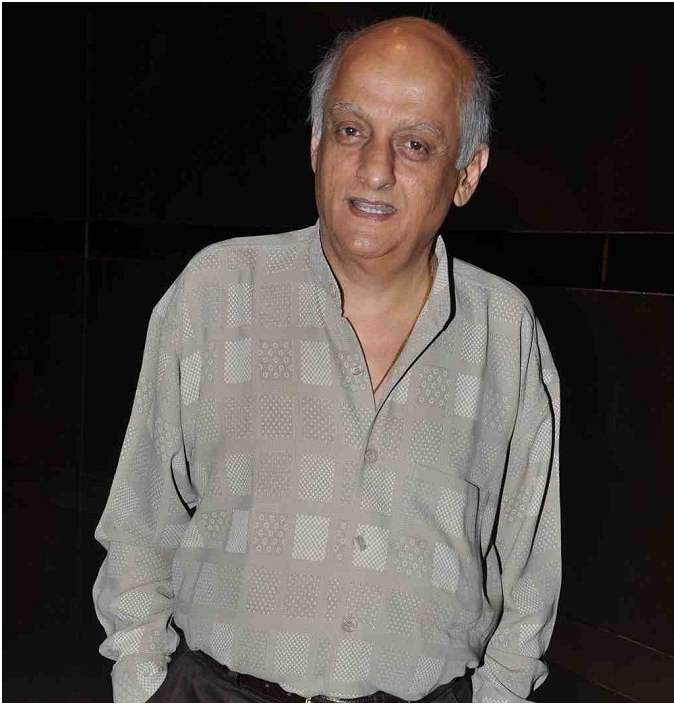
I endorse this to the fullest. I feel it is the primary duty of every good and healthy organisation to see that none of its members – whether they are in the office or in the administrative domain or in a workplace like a film shoot – are vulnerable to any kind of exploitation because that is the worst kind of thing to happen to any human being.
For us, my brother and I, who head the company, the members of our shooting unit and of our office are like our children. It becomes a parental duty to protect our children and see that none, especially the weaker, are even remotely exploited. It is an unbearable and repulsive thought that anything like that could happen in our domain. I feel this is something which was very much needed. I welcome this and I feel this is the correct way to take things forward.
If there is a secure environment, that should open the windows to more women to feel comfortable. They will feel less vulnerable and more confident. That is what is needed. I do not want my daughter to go to an office where she feels vulnerable. I have a daughter. I have a sister. So this is my concern. PoSH is a welcome sign. Things will now happen for the better. People will not feel scared any more, especially women. It is our moral duty to see that we give them not only physical security, but also psychological security, which is very important. I think the amended by-laws will do a lot of good.
My sister is setting up an ICC in our production company as she runs the administrative part of the business. I look at the big picture. She is doing it very proactively. My daughter, Sakshi, is the director of the company. Fortunately, I have my sister and my daughter who are taking care of the shoot and the office. They are best suited to look after it as they are both women.
Sneha Rajani, Sub-Committee Head of PoSH Regulations
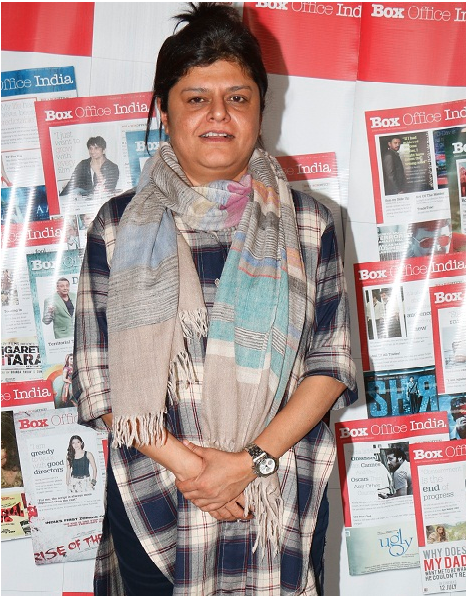
When this whole #MeToo movement broke out, Siddharth Roy Kapur immediately reached out to us, saying we should do something about this proactively and not stay silent. The 10-11 of us that are on the committee immediately agreed, saying we should address this head-on and not take a back seat. That is why we very quickly formed this committee.
We realised that awareness of the law was very poor among producers. It is mandatory by law for people to have an ICC in place, if you have more than 10 employees. It was shocking to see that not many in the fraternity knew about it. We decided that we must first build awareness among our fraternity, educate them and sensitise them about what the law is, what the requirements of the law are, and how it is necessary and important for you to be compliant.
Therefore, the first thing we did was to train ourselves as a committee. We had an awareness programme and we are changing our by-laws whereby we are making it compulsory for all Guild members to be compliant with the law, and to implement this within the next 30 days, starting this week, and providing us with a declaration that they are compliant with it. Failure to do so and failure to give us appropriate reasons as to why they haven’t done it in 30 days will entail expulsion from the Guild.
People just did not have any awareness about this law, which is mandatory. Corporates follow it. For example, Sony Pictures, who I represent, has been following it ever since Vishaka (Vishaka Guidelines) came into being as a regulation. Otherwise, there is no awareness of this among small producers and small production houses, which is what we are trying to change through various activities like sending out mailers, arranging workshops, awareness and training programmes for Guild members. There are quite a few steps that we have taken and are going to take in the weeks and months to come.
Priti Shahani, Committee Member, Producers Guild of India
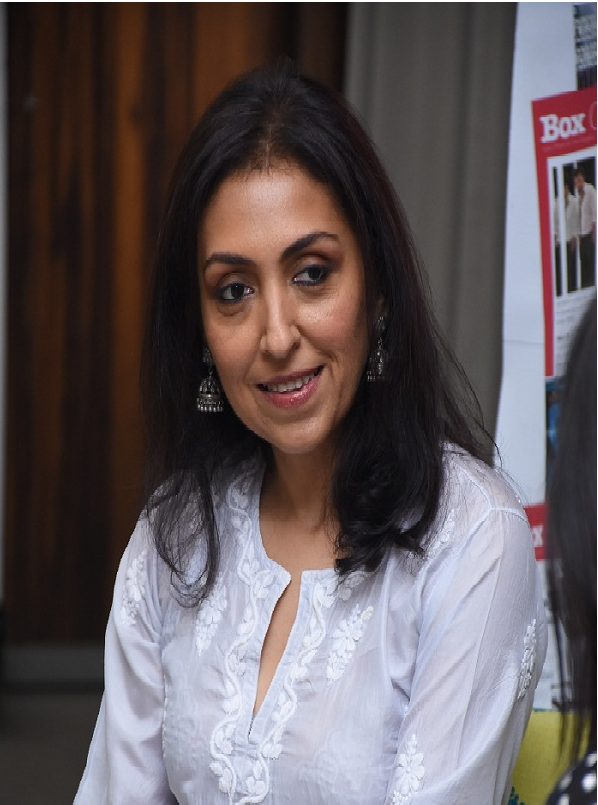
Junglee Pictures is a part of the Times of India Group and we have always had an ICC that is part of the group. We are aligned to that ICC. We have had training and sensitization, which is mandatory for us even before this came out.
There are many questions about people misusing this movement and the first thing is that we should begin by believing that people will not do this. The moment we seed this, we’re creating an environment of mistrust, which is very unfortunate. It serves as a deterrent for women to come forward because then they will start thinking that they will not be believed. Let’s begin this as a positive movement and we are trying to create an environment for more people to come forward and we would like to place trust in the fact that it will not be baseless.
Apoorva Mehta, Committee Member, Producers Guild of India
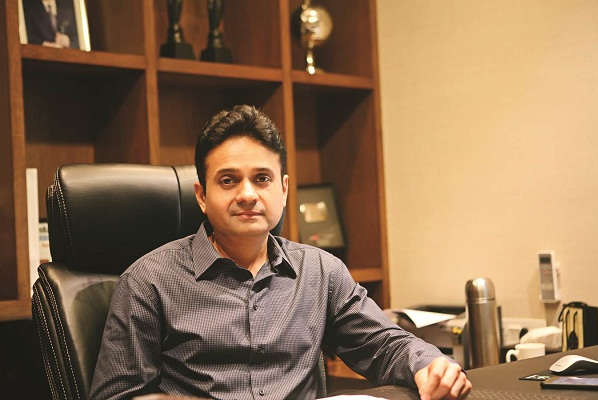
At Dharma Productions, we have had an ICC for the last four to five years because we have a sizeable women population in our organisation in the back office and also on the field in terms of production. I think the law is designed in such a way that if someone is doing this for malicious gain, they will be penalised equally. We would like to believe in the goodness of humanity that people are not going to misuse it. Eventually, the whole process where people have to come forward and say something is upsetting mentally, physically and emotionally.
I would like to believe that nobody would do something like this to gain something. But it will help people who are going through this problem and ensure that there is a place they can go to and ensure closure for anything that has happened to them. In that sense, it is an extraordinarily well-designed Act as it takes everything into account and encourages prevention as opposed to redressal.
Kulmeet Makkar, Chief Executive Officer, Producers Guild of India
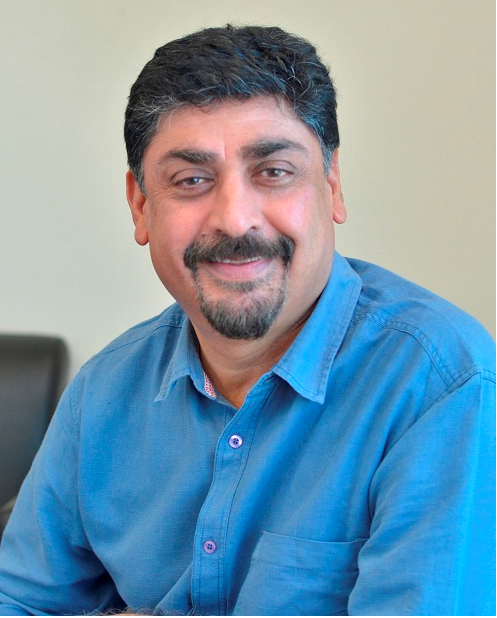
The Producers Guild of India is fully committed to ensuring implementation of the Prevention of Sexual Harassment (PoSH) Act 2013 by every single Guild member-organisation as provided by the law. We are playing the role of an enabler by supporting our members through workshops conducted by specialised agencies. Amending Guild bylaws to make it mandatory for members to implement the PoSH Act 2013 confirms our belief in making our industry a safer place for women to work in. We will continue to take these efforts forward and wholeheartedly support and work with every member to ensure the safety of women at the workplace.
15th November 2018
Mumbai, 15th November 2018, Producers Guild of India at its Extraordinary General Meeting (EGM) on 14th November, 2018 in Mumbai unanimously passed a resolution to amend its by-laws thereby making it mandatory for all those members who fall under the purview of the The Sexual Harassment of Women at Workplace (Prevention, Prohibition and Redressal) Act 2013 (PoSH), to implement the requisite laws including constitution of Internal Complaints Committee (ICC) and accordingly submit a declaration to the Producers Guild of India confirming enforceability of necessary PoSH guidelines within their organisation.
Prior to the EGM, Producers Guild of India also conducted a workshop through a specialized external agency which made a comprehensive presentation highlighting various facets and provisions required to be statutorily executed under the PoSH Act 2013. The objective of the EGM along with the workshop was not only to educate members on the legal provisions of the PoSH Act 2013 but also sensitize them about the growing need and urgency to institute and implement robust processes at their workplaces.
President of the Producers Guild of India, Siddharth Roy Kapur stated that “It is incredibly heartening to see the unanimous support that our members have extended towards the initiatives taken by the Guild to help make workplaces in our industry safe spaces for women. We are committed to working closely with our members to ensure complete compliance with PoSH guidelines across the industry.”
17th October 2018
Mumbai, 17th October 2018 Within the first week of setting up a special committee on sexual harassment, the Producers Guild of India has called for an Extraordinary General Meeting to amend its by-laws to –
1. Make it mandatory for all existing and new members to sign a declaration that affirms that ‘The Sexual Harassment of Women at Workplace (Prevention, Prohibition and Redressal) Act 2013’ and any amendment/ successor act thereof has been instituted and implemented in their workplaces, as prescribed by the law. This is to be signed and submitted by every Guild member within 30 days of receipt of the declaration from the Guild. Within these 30 days, the Guild will schedule a series of workshops to be conducted by specialized external agencies, which will enable its members to institute and implement these robust processes at their workplaces, if they have not already done so. Failure to submit the declaration to the Guild by the end of 30 days from its receipt, would result in expulsion from the Guild.
2. Affirm that if any nominated representative of a Guild member is adjudged to have engaged in sexual harassment by the Internal Complaints Committee (ICC) constituted by the concerned Guild member and/ or by way of any other legal process available in law, the Guild has the right to immediately expel the concerned nominated representative.
The committee will enable all Guild members to institute and implement robust processes in their workplaces to ensure the highest standards of safety for employees and crew members, whether in offices or on the sets of productions.
The Guild is committed to working on a sustained and continuing basis to make industry workplaces safe spaces for everyone who works here
10th October 2018
Mumbai, 10th October2018 The Producers Guild of India is committed to work towards making workplaces in the industry safe spaces for everyone. In this regard a special committee has been instituted within the Guild to address the issue of sexual harassment at the workplace within our industry. The membership composition of this committee is as follows – Sneha Rajani (Committee Head) Apoorva Mehta Ekta Kapoor Fazila Allana Jyoti Deshpande Kiran Rao Kulmeet Makkar Madhu Bhojwani Priti Shahani Rohan Sippy Siddharth Roy Kapur
The first meeting of the committee was held on 10th October, and it was resolved to immediately - 1. Ensure that our members are sent a copy of the Gazette of India with notifications issued on Sexual Harassment of Women at Workplace, so that they may implement these practices in their establishments at the earliest, if they have not done so already.
2. Organize specialised workshops with the support of professional agencies, to guide our members in how to implement robust processes and best practices to deal with sexual harassment at their workplaces - whether in their offices or on the sets of their productions.
The Guild will organize multiple sessions of these workshops over the coming weeks and months, to enable all our members and their teams to participate.
The special committee that has been set in place will meet frequently in the coming days to ensure that this is an ongoing and sustained effort, that will lead to a safer environment for all members of our industry
9th October 2018
Mumbai, 9th October 2018 Producers Guild of India extends its complete support to the movement to call out and report sexual harassment and abuse whenever and wherever it occurs in our industry. We believe that there is an urgent need to set up a robust process to ensure the highest standards of safety for employees and crew members at the workplace - whether in offices or on sets of productions. We are instituting a committee within the Guild to lead this effort, and we are determined to stay the course till workplaces in the industry are safe spaces for everyone.